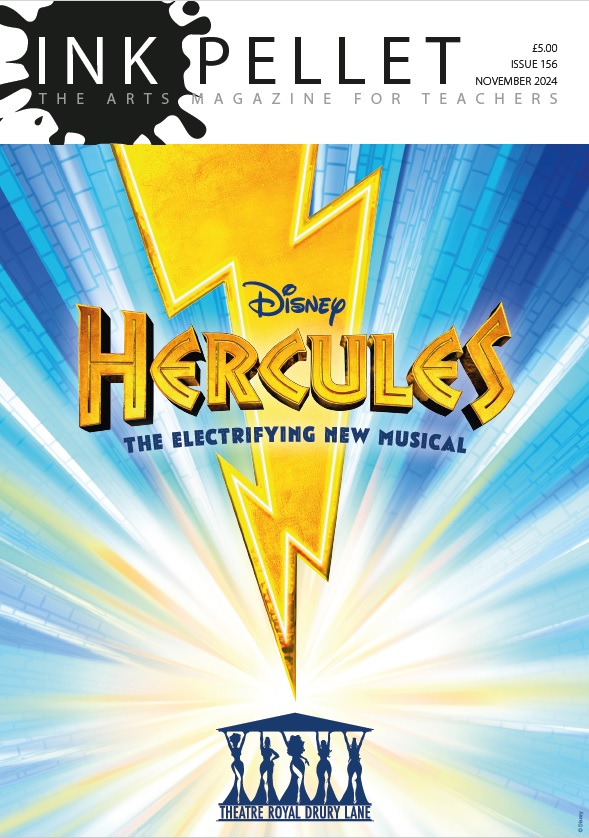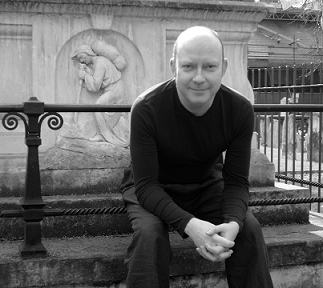Poetry makes you stop and think. Do we have time for it these days? The attention span to stop and think for a moment? It seems we do: a new wave of poets are among us; there are more poetry competitions that are being talked about – and a whole new way to present them, on stage, using film and other digital media.
Simon Barraclough is one of this modern type of poet: certainly not a performance poet but one who is able to use his interest and love of performing to share his work – getting out there rather than being only available on paper. He says: ‘Poetry is principally about rhythm and music; I like to see it as a musical art form rather than one that has to communicate ideas. Although it does do both things it is more successful if the music is working.
‘I leave other people to describe my writing – I’m much more experimental than I was; people say I write visual poems and I do use film and music so they have a multi-media side. I’m interested in working with other art forms. At the moment I’m composing songs for my new work about the sun [called Sunspots]. I wouldn’t call myself a performance poet; I do like the quietness of poems on a page.’
Writing for a living was not really an option for the good student from a working class family from Huddersfield. But then, he admits, neither was being a vet (his first choice of career) or an astronomer.
His mother was a nurse. Simon’s father, who died in 1997, built gear boxes for tractors during the day. In his spare time, following the tradition of a working class man, he was deeply involved with brass band music. An accomplished composer – self-taught – many of his pieces are still performed today. His most famous, named after his two children Lorraine and Simon, is called Simoraine.
Sister Lorraine is herself a fine artist and graphic designer and has just had botanical drawings accepted at a botanical exhibition. Simon says: ‘Lorraine and I are working together – for the first time. She’s illustrating something I’ve been writing. She’s often designed logos and posters I’ve done but we’ve always wanted to do something together.’
Childhood was filled with music and … few books? I ask Simon about a comment he once made about the lack of books at home. A wry laugh: ‘My mother hates me for saying there weren’t many books – and there weren’t but they were very crucial books. We had Ian Fleming novels, we had Ulysses, Finnegan’s Wake and a great anthology called Verse and Worse – an old favourite that I still have today’.
At school Simon displayed his gift and love for writing. He recalls: ‘I was playing around with writing at an early age. I once shocked a teacher when I was seven years old by asking for another exercise book. ‘What do you want that for?’ she asked. ‘I want to write you a book.’ She thought this was incredible and I tried to write a Dr Who novel with illustrations of Daleks. It was really terrible.
‘There were three teachers I remember. When I was seven it was Mrs Gardner, a wonderful Scottish woman, very encouraging who took a shine to me. There was Mr Herbert. He was around when I was 13 and my interest in poetry really took off. And then there was a Mr Gillard who took me through A-Levels – he was funny, eccentric and encouraging. ‘I went to Nottingham University because he’d been there. He got me to love DH Lawrence and it was Lawrence’s area – not to mention the excellent English department!’
One of Simon’s first memories of poetry was through a Canadian supply teacher. He says: ‘It was very exotic to have a Canadian in Huddersfield and on the last day we had story time where she read us a translation of Beowulf which was terrifying and gory and nothing I’d ever heard before and that was very exciting.
‘Later I came across Auden and Ted Hughes. I was once asked to write a page about a poem – I ended up writing 26 pages and this was a sensation in school! I kind of knew then – I didn’t just enjoy reading it. I could write about it and write it – I’d started writing poems in my teenage years. My mum’s got them in her wardrobe – I must remember to burn them!’
The choice of university degree was inevitable: ‘all my teachers thought it would be insane if I didn’t read English.’ After Nottingham, Simon headed for the University of Sussex where he did an MA in Critical Theory. Disillusionment about writing set in and Simon found himself working in a record shop in Reading, where his mother had relocated.
‘I’d run out of money and options. I was always in a bad mood. Never finishing anything; just fizzing around writing things. I was writing mainly poetry; sometimes short stories and I would start novels and keep journals. The first thing I got published was a short story in a local magazine in Reading and that was a boost.
‘I got a job in a training department in a telecoms company and then did some work as a freelance technical author. I still do a bit of this because it pays much more than other types of writing though I’m trying to do less of it now!’
The year 1997 was a big one – it saw the death of his father from whom he had become estranged for a variety of reasons and a resolution to finally take his writing more seriously. Simon signed up for a course with Michael Donaghy. That was the start of his new life.
He says: ‘I won a competition and got an idea where I was in relation to my contemporaries. You have to ask: where do I stand? Am I any good? Am I writing the same stuff? That’s when I started focusing on it. I started to get published, won the London Writers’ Prize which was a fantastic boost and went on from there. ‘My first book Los Alamos Mon Amour came out in 2008 and was nominated for Best First Collection in the Forward Prizes of 2008.’
Other collections include Neptune Blue and Bonjour Tetris. Simon has spent the last few years collaborating (notably on The Debris Field with Isobel Dixon and Chris McCabe with music by Oli Barrett and new film by Jack Wake-Walker). His work has featured on the radio; he has been teaching, doing workshops and is now writer-in-residence at the Mullard Space Lab where he is satisfying his love of astronomy. Simon is also in demand as a competition judge. He has been invited to judge the Foyle Young Poet of the Year Award. ‘I was delighted and excited to be part of such a prestigious competition. There’s an Arvon residential course attached to this so I’m really happy to be able to work with these promising and talented young writers.
‘I’ll be looking for a good poem! And that’s so hard to define: something that is fresh, surprising; words that do interesting things; that grab attention, that doesn’t repeat things I’ve seen dozens of time before! I want something that makes my eyes go a little wider; a new kind of writing. You don’t know how it looks but you’ll know it when you see it.’
So what’s Simon’s own process for writing? ‘Writing in form is less popular than it was but there is still a lot of people writing it and teaching it. It’s essential and very important to be able to ‘turn a good sonnet’ so you learn certain skills and techniques as you go.
‘It’s a bit like Chagall – he was a great draughtsman but he chose to paint bendy green donkeys flying upside down but he could do both. You need to know the rules before you can break them.
‘The English language allows you to slip in and out of metrical forms automatically. These days I’m very instinctual with how I write. I can change gears, and change forms two or three times in a poem if it suits the subject.
‘You know when you’ve written a good poem when the style and the rhythm and the music of it are working well with the original concept you had, and you’re not using any dead or clichéd or off-the-peg language. ‘I’m writing a book about the Sun but it’s difficult, because the Sun has been written about a lot so it’s difficult to find something that hasn’t been done before.
‘Sometimes you start with an idea; sometimes it’s a line that just comes to you; sometimes it’s a rhythm you want to add words to later. Glyn Maxwell wrote a brilliant book on poetry – it’s a fantastic guide – I recommend people read it.
‘Everybody loves poetry at a certain stage of their life, normally when they’re young they like nonsense rhymes, skipping games and counting rhymes. It’s when they start to tackle and analyse to get right and wrong which is when it goes badly astray.
‘That’s not saying you shouldn’t analyse of course but poems are about how they sound how they feel and how memorable they are; and what pleasure you can get from them.’
A few of my favourite things
BOOK: I read Ulysses in one go on an Italian beach over 10 days. And I did listen to the whole of Marcel Proust’s Remembrance of Things Past
POET: Oh that’s really difficult! I do love Samuel Beckett
POETRY: Edwin Morgan – I would really recommend Morgan especially for youngsters taking part in the competition.
SHAKESPEARE: at the moment Richard II the only one written entirely in verse. FILM: Vertigo by Alfred Hitchcock
TV: I love Buffy the Vampire Slayer!
MUSIC: Miles Davies because I’m learning the trumpet.
For further details about Simon’s work, and to see his writing visit: http://simonbarraclough.com/



